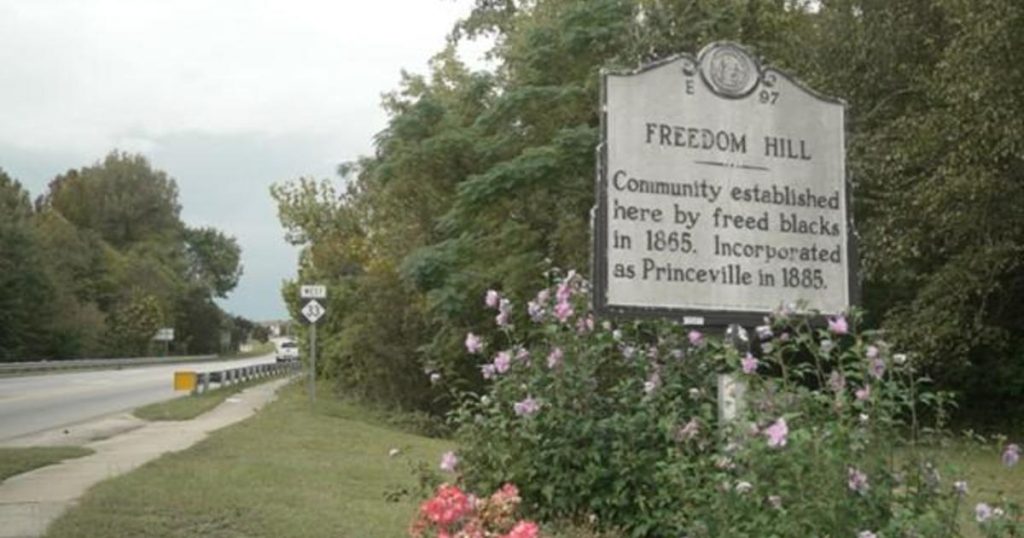In Princeville, North Carolina, the predominantly Black community is facing a changing political landscape as the state’s 1st Congressional District, which has historically been Democratic, is now considered a tossup after redistricting. The district has a deep history of African American political organizing, dating back to the Civil War era. The town of Princeville itself is the oldest town chartered by African Americans in the country and has a legacy of resilience in the face of frequent flooding. The current mayor, Bobbie Jones, has been working to protect the town from flooding, and the Biden administration’s focus on climate infrastructure has provided funding to support these efforts.
The community in Princeville and neighboring Warren County are seeing increased engagement in politics, particularly among younger generations. The area has a history of activism, including the environmental justice movement that began in the 1980s. Rev. Bill Kearney, whose family lived next to a landfill where toxic chemicals were dumped, recalls the protests that led to the beginning of the environmental justice movement. The activism also played a role in improving race relations in the area, as it brought together Black and White residents in a common cause.
Former Rep. Eva Clayton, the first Black woman elected to Congress from North Carolina, emphasizes the importance of Black voter turnout in rural communities like the Black Belt in winning elections. Organizations like Woke Vote are working to increase voter engagement in rural Eastern North Carolina, including visiting churches like Mark Chapel Baptist Church to register voters and provide information on voting procedures. Local leaders, like Pastor Douglas Leonard, are encouraging their congregants to participate in the electoral process and honor the sacrifices made by their ancestors for the right to vote.
The political landscape in North Carolina is shifting, with the 1st Congressional District becoming a key battleground in the upcoming elections. The district’s demographics and history of Black political organizing make it a crucial area for both parties to focus on. Vice President Kamala Harris recently visited the region, highlighting the significance of the upcoming elections. Local leaders, like Mayor Bobbie Jones and Rev. Bill Kearney, are working to empower their communities and educate them on the importance of political engagement.
Despite the challenges facing Princeville and the Black Belt region, there is a renewed sense of enthusiasm and determination among residents. The community is coming together to address issues like flooding and environmental justice, while also recognizing the importance of voting in shaping their future. As the political landscape continues to evolve, these grassroots efforts are essential in ensuring that the voices of marginalized communities are heard and represented in the democratic process.
The upcoming elections in North Carolina are expected to have far-reaching implications, not only for the state but also for the country as a whole. The Black Belt region, with its rich history of activism and resilience, is playing a pivotal role in shaping the outcome of the elections. As residents of Princeville and the surrounding communities continue to mobilize and engage in the political process, they are making their voices heard and fighting for a future where their needs and concerns are prioritized by elected officials.


